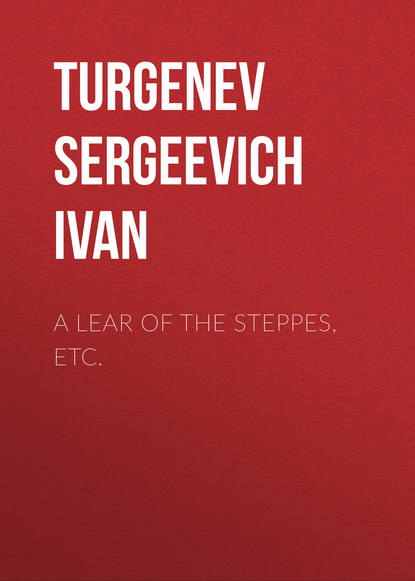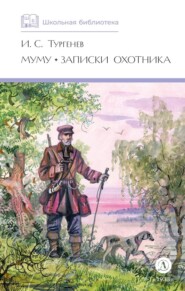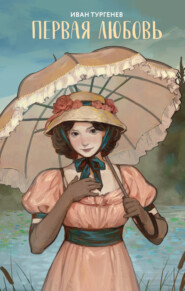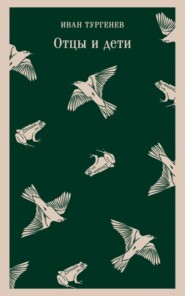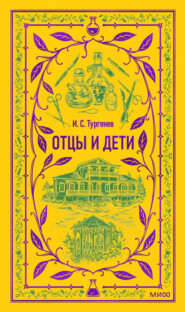По всем вопросам обращайтесь на: info@litportal.ru
(©) 2003-2025.
✖
A Lear of the Steppes, etc.
Настройки чтения
Размер шрифта
Высота строк
Поля
VIII
Gagin met me in friendly fashion, and overwhelmed me with affectionate reproaches; but Acia, as though intentionally, burst out laughing for no reason whatever, directly she saw me, and promptly ran away, as she so often did. Gagin was disconcerted; he muttered after her that she must be crazy, and begged me to excuse her. I confess I was very much annoyed with Acia; already, apart from that, I was not at my ease; and now again this unnatural laughter, these strange grimaces. I pretended, however, not to notice anything, and began telling Gagin some of the incidents of my short tour. He told me what he had been doing in my absence. But our talk did not flow easily; Acia came into the room and ran out again; I declared at last that I had urgent work to do, and must get back home. Gagin at first tried to keep me, then, looking intently at me, offered to see me on my way. In the passage, Acia suddenly came up to me and held out her hand; I shook her fingers very slightly, and barely bowed to her. Gagin and I crossed the Rhine together, and when we reached my favourite ash-tree with the statuette of the Madonna, we sat down on the bench to admire the view. A remarkable conversation took place between us.
At first we exchanged a few words, then we were silent, watching the clear river.
‘Tell me,’ began Gagin all at once, with his habitual smile, ‘what do you think of Acia? I suppose she must strike you as rather strange, doesn’t she?’
‘Yes,’ I answered, in some perplexity. I had not expected he would begin to speak of her.
‘One has to know her well to judge of her,‘ he observed; ’she has a very good heart, but she’s wilful. She’s difficult to get on with. But you couldn’t blame her if you knew her story…’
‘Her story?’ I broke in… ‘Why, isn’t she your – ’ Gagin glanced at me.
‘Do you really think she isn’t my sister?.. No,’ he went on, paying no attention to my confusion, ‘she really is my sister, she’s my father’s daughter. Let me tell you about her, I feel I can trust you, and I’ll tell you all about it.
‘My father was very kind, clever, cultivated, and unhappy. Fate treated him no worse than others; but he could not get over her first blow. He married early, for love; his wife, my mother, died very soon after; I was only six months old then. My father took me away with him to his country place, and for twelve years he never went out anywhere. He looked after my education himself, and would never have parted with me, if his brother, my uncle, had not come to see us in the country. This uncle always lived in Petersburg, where he held a very important post. He persuaded my father to put me in his charge, as my father would not on any consideration agree to leave the country. My uncle represented to him that it was bad for a boy of my age to live in complete solitude, that with such a constantly depressed and taciturn instructor as my father I should infallibly be much behind other boys of my age in education, and that my character even might very possibly suffer. My father resisted his brother’s counsels a long while, but he gave way at last. I cried at parting from my father; I loved him, though I had never seen a smile on his face … but when I got to Petersburg, I soon forgot our dark and cheerless home. I entered a cadet’s school, and from school passed on into a regiment of the Guards. Every year I used to go home to the country for a few weeks, and every year I found my father more and more low-spirited, absorbed in himself, depressed, and even timorous. He used to go to church every day, and had quite got out of the way of talking. On one of my visits – I was about twenty then – I saw for the first time in our house a thin, dark-eyed little girl of ten years old – Acia. My father told me she was an orphan whom he had kept out of charity – that was his very expression. I paid no particular attention to her; she was shy, quick in her movements, and silent as a little wild animal, and directly I went into my father’s favourite room – an immense gloomy apartment, where my mother had died, and where candles were kept burning even in the daytime – she would hide at once behind his big arm-chair, or behind the book-case. It so happened that for three or four years after that visit the duties of the service prevented my going home to the country. I used to get a short letter from my father every month; Acia he rarely mentioned, and only incidentally. He was over fifty, but he seemed still young. Imagine my horror; all of a sudden, suspecting nothing, I received a letter from the steward, in which he informed me my father was dangerously ill, and begged me to come as soon as possible if I wanted to take leave of him. I galloped off post-haste, and found my father still alive, but almost at his last gasp. He was greatly relieved to see me, clasped me in his wasted arms, and gazed at me with a long, half-scrutinising, half-imploring look, and making me promise I would carry out his last request, he told his old valet to bring Acia. The old man brought her in; she could scarcely stand upright, and was shaking all over.
‘“Here,” said my father with an effort, “I confide to you my daughter – your sister. You will hear all about her from Yakov,” he added, pointing to the valet.
‘Acia sobbed, and fell with her face on the bed… Half-an-hour later my father died.
‘This was what I learned. Acia was the daughter of my father by a former maidservant of my mother’s, Tatiana. I have a vivid recollection of this Tatiana, I remember her tall, slender figure, her handsome, stern, clever face, with big dark eyes. She had the character of being a proud, unapproachable girl. As far as I could find out from Yakov’s respectful, unfinished sentences, my father had become attached to her some years after my mother’s death. Tatiana was not living then in my father’s house, but in the hut of a married sister, who had charge of the cows. My father became exceedingly fond of her, and after my departure from the country he even wanted to marry her, but she herself would not consent to be his wife, in spite of his entreaties.
‘“The deceased Tatiana Vassilievna,” Yakov informed me, standing in the doorway with his hands behind him, “had good sense in everything, and she didn’t want to do harm to your father. ‘A poor wife I should be for you, a poor sort of lady I should make,’ so she was pleased to say, she said so before me.” Tatiana would not even move into the house, and went on living at her sister’s with Acia. In my childhood I used to see Tatiana only on saints’ days in church. With her head tied up in a dark kerchief, and a yellow shawl on her shoulders, she used to stand in the crowd, near a window – her stern profile used to stand out sharply against the transparent window-pane – and she used to pray sedately and gravely, bowing low to the ground in the old-fashioned way. When my uncle carried me off, Acia was only two years old, and she lost her mother when she was nine.
‘Directly Tatiana died, my father took Acia into his house. He had before then expressed a wish to have her with him, but that too Tatiana had refused him. Imagine what must have passed in Acia’s mind when she was taken into the master’s house. To this day she cannot forget the moment when they first put her on a silk dress and kissed her hand. Her mother, as long as she lived, had brought her up very strictly; with my father she enjoyed absolute freedom. He was her tutor; she saw no one except him. He did not spoil her, that is to say, he didn’t fondle and pet her; but he loved her passionately, and never checked her in anything; in his heart he considered he had wronged her. Acia soon realised that she was the chief personage in the house; she knew the master was her father; but just as quickly she was aware of her false position; self-consciousness was strongly developed in her, mistrustfulness too; bad habits took root, simplicity was lost. She wanted (she confessed this to me once herself), to force the whole world to forget her origin; she was ashamed of her mother, and at the same time ashamed of being ashamed, and was proud of her too. You see she knew and knows a lot that she oughtn’t to have known at her age… But was it her fault? The forces of youth were at work in her, her heart was in a ferment, and not a guiding hand near her. Absolute independence in everything! And wasn’t it hard for her to put up with? She wanted to be as good as other young ladies; she flew to books. But what good could she get from that? Her life went on as irregularly as it had begun, but her heart was not spoiled, her intellect was uninjured.
‘And there was I left, a boy of twenty, with a girl of thirteen on my hands! For the first few days after my father’s death the very sound of my voice threw her into a fever, my caresses caused her anguish, and it was only slowly and gradually that she got used to me. It is true that later, when she fully realised that I really did acknowledge her as my sister, and cared for her, she became passionately attached to me; she can feel nothing by halves.
‘I took her to Petersburg. Painful as it was to part with her, we could not live together. I sent her to one of the best boarding-schools. Acia knew our separation was inevitable, yet she began by fretting herself ill over it, and almost died. Later on she plucked up more spirit, and spent four years at school; but, contrary to my expectations, she was almost exactly the same as before. The headmistress of the school often made complaints of her, “And we can’t punish her,” she used to say to me, “and she’s not amenable to kindness.” Acia was exceedingly quick-witted, and did better at her lessons than any one; but she never would put herself on a level with the rest; she was perverse, and held herself aloof… I could not blame her very much for it; in her position she had either to be subservient, or to hold herself aloof. Of all her school-fellows she only made friends with one, an ugly girl of poor family, who was sat upon by the rest. The other girls with whom she was brought up, mostly of good family, did not like her, teased her and taunted her as far as they could. Acia would not give way to them an inch. One day at their lesson on the law of God, the teacher was talking of the vices. ‘Servility and cowardice are the worst vices,’ Acia said aloud. She would still go her own way, in fact; only her manners were improved, though even in that respect I think she did not gain a great deal.
‘At last she reached her seventeenth year. I could not keep her any longer at school. I found myself in a rather serious difficulty. Suddenly a blessed idea came to me – to resign my commission and go abroad for a year or two, taking Acia with me. No sooner thought than done; and here we are on the banks of the Rhine, where I am trying to take up painting, and she … is as naughty and troublesome as ever. But now I hope you will not judge her too harshly; for though she pretends she doesn’t care, she values the good opinion of every one, and yours particularly.’
And Gagin smiled again his gentle smile. I pressed his hand warmly.
‘That’s how it is,’ Gagin began again; ‘but I have a trying time with her. She’s like gun-powder, always ready to go off. So far, she has never taken a fancy to any one, but woe betide us, if she falls in love! I sometimes don’t know what to do with her. The other day she took some notion into her head, and suddenly began declaring I was colder to her than I used to be, that she loved me and no one else, and never would love any one else… And she cried so, as she said it – ’
‘So that was it,’ – I was beginning, but I bit my tongue.
‘Tell me,’ I questioned Gagin, ‘we have talked so frankly about everything, is it possible really, she has never cared for any one yet? Didn’t she see any young men in Petersburg?’
‘She didn’t like them at all. No, Acia wants a hero – an exceptional individual – or a picturesque shepherd on a mountain pass. But I’ve been chattering away, and keeping you,’ he added, getting up.
‘Do you know – ,’ I began; ‘let’s go back to your place, I don’t want to go home.’
‘What about your work?’
I made no reply. Gagin smiled good-humouredly, and we went back to L. As I caught sight of the familiar vineyard and little white house, I felt a certain sweetness – yes, sweetness in my heart, as though honey was stealthily dropping thence for me. My heart was light after what Gagin had told me.
IX
Acia met us in the very doorway of the house. I expected a laugh again; but she came to meet us, pale and silent, with downcast eyes.
‘Here he is again,’ Gagin began, ‘and he wanted to come back of his own accord, observe.’
Acia looked at me inquiringly. It was my turn now to hold out my hand, and this time I pressed her chilly fingers warmly. I felt very sorry for her. I understood now a great deal in her that had puzzled me before; her inward restlessness, her want of breeding, her desire to be striking – all became clear to me. I had had a peep into that soul; a secret scourge was always tormenting her, her ignorant self-consciousness struggled in confused alarm, but her whole nature strove towards truth. I understood why this strange little girl attracted me; it was not only by the half-wild charm of her slender body that she attracted me; I liked her soul.
Gagin began rummaging among his canvases. I suggested to Acia that she should take a turn with me in the vineyard. She agreed at once, with cheerful and almost humble readiness. We went half-way down the mountain, and sat down on a broad stone.
‘And you weren’t dull without us?’ Acia began.
‘And were you dull without me?’ I queried.
Acia gave me a sidelong look.
‘Yes,’ she answered. ‘Was it nice in the mountains?’ she went on at once. ‘Were they high ones? Higher than the clouds? Tell me what you saw. You were telling my brother, but I didn’t hear anything.’
‘It was of your own accord you went away,’ I remarked.
‘I went away … because … – I’m not going away now,’ she added with a confiding caress in her voice. ‘You were angry to-day.’
‘I?’
‘Yes, you.’
‘Upon my word, whatever for?’
‘I don’t know, but you were angry, and you went away angry. I was very much vexed that you went away like that, and I’m so glad you came back.’
‘And I’m glad I came back,’ I observed.
Acia gave herself a little shrug, as children often do when they are very pleased.
‘Oh, I’m good at guessing!’ she went on. ‘Sometimes, simply from the way papa coughed, I could tell in the next room whether he was pleased with me or not.’
Till that day Acia had never once spoken to me of her father. I was struck by it.
‘Were you fond of your father?’ I said, and suddenly, to my intense annoyance, I felt I was reddening.
She made no answer, and blushed too. We were both silent. In the distance a smoking steamer was scudding along on the Rhine. We began watching it.
‘Why don’t you tell me about your tour?’ Acia murmured.
‘Why did you laugh to-day directly you saw me?’ I asked.
‘I don’t know really. Sometimes I want to cry, but I laugh. You mustn’t judge me – by what I do. Oh, by-the-bye, what a story that is about the Lorelei! Is that her rock we can see? They say she used to drown every one, but as soon as she fell in love she threw herself in the water. I like that story. Frau Luise tells me all sorts of stories. Frau Luise has a black cat with yellow eyes…’
Acia raised her head and shook her curls.
Gagin met me in friendly fashion, and overwhelmed me with affectionate reproaches; but Acia, as though intentionally, burst out laughing for no reason whatever, directly she saw me, and promptly ran away, as she so often did. Gagin was disconcerted; he muttered after her that she must be crazy, and begged me to excuse her. I confess I was very much annoyed with Acia; already, apart from that, I was not at my ease; and now again this unnatural laughter, these strange grimaces. I pretended, however, not to notice anything, and began telling Gagin some of the incidents of my short tour. He told me what he had been doing in my absence. But our talk did not flow easily; Acia came into the room and ran out again; I declared at last that I had urgent work to do, and must get back home. Gagin at first tried to keep me, then, looking intently at me, offered to see me on my way. In the passage, Acia suddenly came up to me and held out her hand; I shook her fingers very slightly, and barely bowed to her. Gagin and I crossed the Rhine together, and when we reached my favourite ash-tree with the statuette of the Madonna, we sat down on the bench to admire the view. A remarkable conversation took place between us.
At first we exchanged a few words, then we were silent, watching the clear river.
‘Tell me,’ began Gagin all at once, with his habitual smile, ‘what do you think of Acia? I suppose she must strike you as rather strange, doesn’t she?’
‘Yes,’ I answered, in some perplexity. I had not expected he would begin to speak of her.
‘One has to know her well to judge of her,‘ he observed; ’she has a very good heart, but she’s wilful. She’s difficult to get on with. But you couldn’t blame her if you knew her story…’
‘Her story?’ I broke in… ‘Why, isn’t she your – ’ Gagin glanced at me.
‘Do you really think she isn’t my sister?.. No,’ he went on, paying no attention to my confusion, ‘she really is my sister, she’s my father’s daughter. Let me tell you about her, I feel I can trust you, and I’ll tell you all about it.
‘My father was very kind, clever, cultivated, and unhappy. Fate treated him no worse than others; but he could not get over her first blow. He married early, for love; his wife, my mother, died very soon after; I was only six months old then. My father took me away with him to his country place, and for twelve years he never went out anywhere. He looked after my education himself, and would never have parted with me, if his brother, my uncle, had not come to see us in the country. This uncle always lived in Petersburg, where he held a very important post. He persuaded my father to put me in his charge, as my father would not on any consideration agree to leave the country. My uncle represented to him that it was bad for a boy of my age to live in complete solitude, that with such a constantly depressed and taciturn instructor as my father I should infallibly be much behind other boys of my age in education, and that my character even might very possibly suffer. My father resisted his brother’s counsels a long while, but he gave way at last. I cried at parting from my father; I loved him, though I had never seen a smile on his face … but when I got to Petersburg, I soon forgot our dark and cheerless home. I entered a cadet’s school, and from school passed on into a regiment of the Guards. Every year I used to go home to the country for a few weeks, and every year I found my father more and more low-spirited, absorbed in himself, depressed, and even timorous. He used to go to church every day, and had quite got out of the way of talking. On one of my visits – I was about twenty then – I saw for the first time in our house a thin, dark-eyed little girl of ten years old – Acia. My father told me she was an orphan whom he had kept out of charity – that was his very expression. I paid no particular attention to her; she was shy, quick in her movements, and silent as a little wild animal, and directly I went into my father’s favourite room – an immense gloomy apartment, where my mother had died, and where candles were kept burning even in the daytime – she would hide at once behind his big arm-chair, or behind the book-case. It so happened that for three or four years after that visit the duties of the service prevented my going home to the country. I used to get a short letter from my father every month; Acia he rarely mentioned, and only incidentally. He was over fifty, but he seemed still young. Imagine my horror; all of a sudden, suspecting nothing, I received a letter from the steward, in which he informed me my father was dangerously ill, and begged me to come as soon as possible if I wanted to take leave of him. I galloped off post-haste, and found my father still alive, but almost at his last gasp. He was greatly relieved to see me, clasped me in his wasted arms, and gazed at me with a long, half-scrutinising, half-imploring look, and making me promise I would carry out his last request, he told his old valet to bring Acia. The old man brought her in; she could scarcely stand upright, and was shaking all over.
‘“Here,” said my father with an effort, “I confide to you my daughter – your sister. You will hear all about her from Yakov,” he added, pointing to the valet.
‘Acia sobbed, and fell with her face on the bed… Half-an-hour later my father died.
‘This was what I learned. Acia was the daughter of my father by a former maidservant of my mother’s, Tatiana. I have a vivid recollection of this Tatiana, I remember her tall, slender figure, her handsome, stern, clever face, with big dark eyes. She had the character of being a proud, unapproachable girl. As far as I could find out from Yakov’s respectful, unfinished sentences, my father had become attached to her some years after my mother’s death. Tatiana was not living then in my father’s house, but in the hut of a married sister, who had charge of the cows. My father became exceedingly fond of her, and after my departure from the country he even wanted to marry her, but she herself would not consent to be his wife, in spite of his entreaties.
‘“The deceased Tatiana Vassilievna,” Yakov informed me, standing in the doorway with his hands behind him, “had good sense in everything, and she didn’t want to do harm to your father. ‘A poor wife I should be for you, a poor sort of lady I should make,’ so she was pleased to say, she said so before me.” Tatiana would not even move into the house, and went on living at her sister’s with Acia. In my childhood I used to see Tatiana only on saints’ days in church. With her head tied up in a dark kerchief, and a yellow shawl on her shoulders, she used to stand in the crowd, near a window – her stern profile used to stand out sharply against the transparent window-pane – and she used to pray sedately and gravely, bowing low to the ground in the old-fashioned way. When my uncle carried me off, Acia was only two years old, and she lost her mother when she was nine.
‘Directly Tatiana died, my father took Acia into his house. He had before then expressed a wish to have her with him, but that too Tatiana had refused him. Imagine what must have passed in Acia’s mind when she was taken into the master’s house. To this day she cannot forget the moment when they first put her on a silk dress and kissed her hand. Her mother, as long as she lived, had brought her up very strictly; with my father she enjoyed absolute freedom. He was her tutor; she saw no one except him. He did not spoil her, that is to say, he didn’t fondle and pet her; but he loved her passionately, and never checked her in anything; in his heart he considered he had wronged her. Acia soon realised that she was the chief personage in the house; she knew the master was her father; but just as quickly she was aware of her false position; self-consciousness was strongly developed in her, mistrustfulness too; bad habits took root, simplicity was lost. She wanted (she confessed this to me once herself), to force the whole world to forget her origin; she was ashamed of her mother, and at the same time ashamed of being ashamed, and was proud of her too. You see she knew and knows a lot that she oughtn’t to have known at her age… But was it her fault? The forces of youth were at work in her, her heart was in a ferment, and not a guiding hand near her. Absolute independence in everything! And wasn’t it hard for her to put up with? She wanted to be as good as other young ladies; she flew to books. But what good could she get from that? Her life went on as irregularly as it had begun, but her heart was not spoiled, her intellect was uninjured.
‘And there was I left, a boy of twenty, with a girl of thirteen on my hands! For the first few days after my father’s death the very sound of my voice threw her into a fever, my caresses caused her anguish, and it was only slowly and gradually that she got used to me. It is true that later, when she fully realised that I really did acknowledge her as my sister, and cared for her, she became passionately attached to me; she can feel nothing by halves.
‘I took her to Petersburg. Painful as it was to part with her, we could not live together. I sent her to one of the best boarding-schools. Acia knew our separation was inevitable, yet she began by fretting herself ill over it, and almost died. Later on she plucked up more spirit, and spent four years at school; but, contrary to my expectations, she was almost exactly the same as before. The headmistress of the school often made complaints of her, “And we can’t punish her,” she used to say to me, “and she’s not amenable to kindness.” Acia was exceedingly quick-witted, and did better at her lessons than any one; but she never would put herself on a level with the rest; she was perverse, and held herself aloof… I could not blame her very much for it; in her position she had either to be subservient, or to hold herself aloof. Of all her school-fellows she only made friends with one, an ugly girl of poor family, who was sat upon by the rest. The other girls with whom she was brought up, mostly of good family, did not like her, teased her and taunted her as far as they could. Acia would not give way to them an inch. One day at their lesson on the law of God, the teacher was talking of the vices. ‘Servility and cowardice are the worst vices,’ Acia said aloud. She would still go her own way, in fact; only her manners were improved, though even in that respect I think she did not gain a great deal.
‘At last she reached her seventeenth year. I could not keep her any longer at school. I found myself in a rather serious difficulty. Suddenly a blessed idea came to me – to resign my commission and go abroad for a year or two, taking Acia with me. No sooner thought than done; and here we are on the banks of the Rhine, where I am trying to take up painting, and she … is as naughty and troublesome as ever. But now I hope you will not judge her too harshly; for though she pretends she doesn’t care, she values the good opinion of every one, and yours particularly.’
And Gagin smiled again his gentle smile. I pressed his hand warmly.
‘That’s how it is,’ Gagin began again; ‘but I have a trying time with her. She’s like gun-powder, always ready to go off. So far, she has never taken a fancy to any one, but woe betide us, if she falls in love! I sometimes don’t know what to do with her. The other day she took some notion into her head, and suddenly began declaring I was colder to her than I used to be, that she loved me and no one else, and never would love any one else… And she cried so, as she said it – ’
‘So that was it,’ – I was beginning, but I bit my tongue.
‘Tell me,’ I questioned Gagin, ‘we have talked so frankly about everything, is it possible really, she has never cared for any one yet? Didn’t she see any young men in Petersburg?’
‘She didn’t like them at all. No, Acia wants a hero – an exceptional individual – or a picturesque shepherd on a mountain pass. But I’ve been chattering away, and keeping you,’ he added, getting up.
‘Do you know – ,’ I began; ‘let’s go back to your place, I don’t want to go home.’
‘What about your work?’
I made no reply. Gagin smiled good-humouredly, and we went back to L. As I caught sight of the familiar vineyard and little white house, I felt a certain sweetness – yes, sweetness in my heart, as though honey was stealthily dropping thence for me. My heart was light after what Gagin had told me.
IX
Acia met us in the very doorway of the house. I expected a laugh again; but she came to meet us, pale and silent, with downcast eyes.
‘Here he is again,’ Gagin began, ‘and he wanted to come back of his own accord, observe.’
Acia looked at me inquiringly. It was my turn now to hold out my hand, and this time I pressed her chilly fingers warmly. I felt very sorry for her. I understood now a great deal in her that had puzzled me before; her inward restlessness, her want of breeding, her desire to be striking – all became clear to me. I had had a peep into that soul; a secret scourge was always tormenting her, her ignorant self-consciousness struggled in confused alarm, but her whole nature strove towards truth. I understood why this strange little girl attracted me; it was not only by the half-wild charm of her slender body that she attracted me; I liked her soul.
Gagin began rummaging among his canvases. I suggested to Acia that she should take a turn with me in the vineyard. She agreed at once, with cheerful and almost humble readiness. We went half-way down the mountain, and sat down on a broad stone.
‘And you weren’t dull without us?’ Acia began.
‘And were you dull without me?’ I queried.
Acia gave me a sidelong look.
‘Yes,’ she answered. ‘Was it nice in the mountains?’ she went on at once. ‘Were they high ones? Higher than the clouds? Tell me what you saw. You were telling my brother, but I didn’t hear anything.’
‘It was of your own accord you went away,’ I remarked.
‘I went away … because … – I’m not going away now,’ she added with a confiding caress in her voice. ‘You were angry to-day.’
‘I?’
‘Yes, you.’
‘Upon my word, whatever for?’
‘I don’t know, but you were angry, and you went away angry. I was very much vexed that you went away like that, and I’m so glad you came back.’
‘And I’m glad I came back,’ I observed.
Acia gave herself a little shrug, as children often do when they are very pleased.
‘Oh, I’m good at guessing!’ she went on. ‘Sometimes, simply from the way papa coughed, I could tell in the next room whether he was pleased with me or not.’
Till that day Acia had never once spoken to me of her father. I was struck by it.
‘Were you fond of your father?’ I said, and suddenly, to my intense annoyance, I felt I was reddening.
She made no answer, and blushed too. We were both silent. In the distance a smoking steamer was scudding along on the Rhine. We began watching it.
‘Why don’t you tell me about your tour?’ Acia murmured.
‘Why did you laugh to-day directly you saw me?’ I asked.
‘I don’t know really. Sometimes I want to cry, but I laugh. You mustn’t judge me – by what I do. Oh, by-the-bye, what a story that is about the Lorelei! Is that her rock we can see? They say she used to drown every one, but as soon as she fell in love she threw herself in the water. I like that story. Frau Luise tells me all sorts of stories. Frau Luise has a black cat with yellow eyes…’
Acia raised her head and shook her curls.





